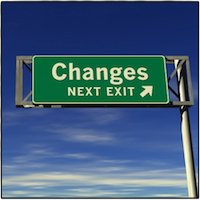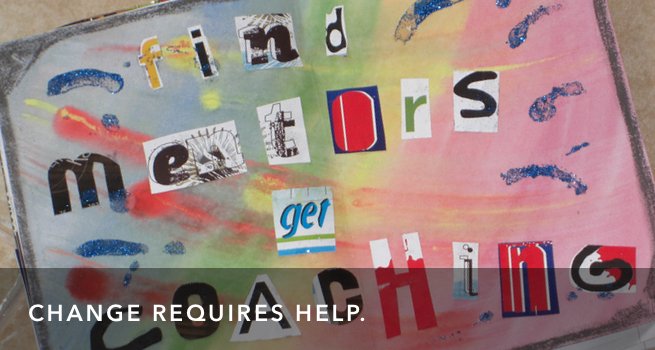What would you do if you learned that unless you change your life, you were going to die?
What if the message came from a trusted authority, bearing verifiable information, drawn from the data of your own life? This isn’t some over-hyped exaggeration from your pastor or boss, trying to make a point. This is careful, thoughtful analysis backed by hard data. You look the information over. The implications are clear.
Either you will change your life or you will die.
Could you muster enough hope and motivation to make the necessary change? What do you think?
Most People Don’t Change.

Stop before you answer. The scientifically proven statistics are depressing. The odds against you making the change are 9 to 1.
When I read this, I couldn’t believe it. But it’s true. This statistic is drawn from a longitudinal study of patients who were diagnosed with early-stage heart disease. They were given clear information about where they are headed. They were given concrete steps they could take to prevent an early death. The steps were hard but do-able. And yet only 1 in 10 made the change.
This scenario comes from the book Change or Die, by Alan Deutschman. This book asks the important question: What of the 10%? What is different for them? How is it that they could change their lives, while the majority of their peers could not?
What About the 10%?
There are changes that I want to make in my life. I’m actively seeking to grow. I know the same is true for you. That’s why you’re here, following this blog. We want a more vibrant, more wholehearted life.
If those changes are going to happen, we have to do something more than hope for them.
Knowing we need to change is not enough. Knowing the consequences of not changing is not enough. Fear will not sustain our life change. We need something more.
Change or Die looks at a number of studies beyond the heart disease scenario. Addiction treatment, recidivism programs, and turn-around companies are all examined. The fascinating thing is that in all these cases, the same three common themes emerged for people who were able to make a dramatic change in their lives.
The 3 necessities to change your life.
Do you want to make a change? Then you need these three things:

1. Relate.
First, you must form a new, emotional relationship with a person or community that you can relate to who inspires the possibility of change. This is someone who has been where you are and has already made the change. It could be an individual, like a mentor. It could be a community, like an AA group.
2. Repeat.
Second, this person or community helps you walk through the small, do-able steps that created the new habits necessary for the life-change to take place. The experienced person offers credible guidance. Because they have already made the change, they inspire hope that the steps will work. Small victories in these practices create a positive environment of success, where change becomes possible.
3. Reframe.
Third, this person or community helps you re-write your personal story, so that you become the kind of person who is the change you hope to see. You become an alcoholic in recovery who can make it one day at a time. You become a heart-disease survivor with healthy life habits. Your story changes from victim to victor, because the people around you teach you to see yourself that way.
It may sound soft and squishy to you, yet these are the three things that showed up consistently in every study where change was evaluated. It was true for addicts. It was true for hardened criminals. It was true for heart-disease patience. It was true for dying companies where the morale was shot and hope was long lost.
It’s also true for people like you and me who need to make a change for life to be better.
I’m swimming in the deep water of life change, and you can too. You need to know that you’re not alone. You need to know that the change you seek is possible. And then you need to take some simple steps. In the coming posts, we’ll dig into each of the three themes that allow for life change, and see how you can apply these proven ideas to your life.
In the meanwhile, if there is any way I can encourage or support you in the life change you are seeking, let me know.
[Side Note to Pastors: As a pastor, I think this is one of the most important books for the church in the last several years. The church is in the business of life change. We promise, based on scripture, a new kind of life. We create programs that have the intention of supporting people in discipleship and transformation. But the sad truth, shown in studies like those done by the Barna group, and in the personal experience of nearly every single pastor I know, is that our record for facilitating lasting life change is not very good.
AA does a better job of helping people deal with addiction. Personal growth seminars like the Landmark Forum do a better job of helping people take steps to pursue their dreams and change their relationships for the better. Executive coaches and life coaches do a better job of walking people though the discipline of personal growth. And yet we are the ones promising people a new life, an abundant life, transformation.
As I read this book, all I could think of with every page is that this book described clearly what the church ought to look like. The parallels to the church discussed in the New Testament are strong. If you haven’t read this book, you need to read it!]
How do you see these three elements of change in your own story?

This was a great post, thanks. I’ve been following on twitter for a little while, I think since we did Michael Hyatt’s book promotion. Anyway, I’ll be reading the book you mentioned. I did think of how all of this should play out in the body of Christ as I read your post. Thanks for sharing.
Thanks for comment, and for following on Twitter. This social media stuff just amazes me! 🙂 I picked up “Change or Die” a while ago as I was thinking about my own life change journey. But as I read it, and thought about all the examples used in the book, I couldn’t help but think that this is really a data-driven blue-print for what the church ought to be up to. It’s just so painful to me how much time, effort, and money we (the Christian church) have invested over the years, and with so little lasting life change as a result. Things need to be different.
Thanks for stopping by! I hope to see you around more.
My reading list is growing. Marc I really like this post. It reminds me of a quote from a friend, she would also tell me “the church is like a hospital”. This is what I pray over as I prepare to teach and/or speak. We have to address diagnose and treat accordingly or solutions will be sought elsewhere.
Hey Dana, thanks for leaving a comment! I really appreciate that. I had a professor when I was getting my Theology degree say the same thing. “A hospital for sinners, not a museum for saints,” he said. I don’t know if it was original to him. But it’s deeply impacted my thinking.
I think you’ll find “Change or Die” really helpful for your own speaking. So much of what’s out there about how to effect life change is guesswork. This is data based, and the results are pretty amazing, at least to me. When you work with the people you teach, it will help you give them a plan to move forward.
I’d love to hear what you think when you read it.
That is a great addition to the quote. I made a note to keep you posted. I plan to order the book. I like the idea of having data to support the suggestions. Thanks again.